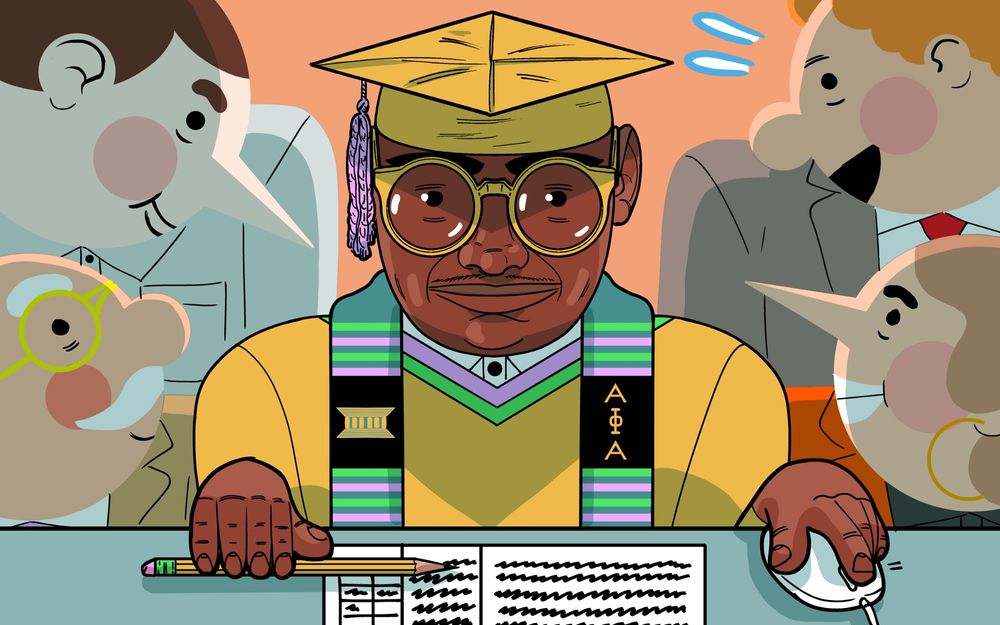For many of my co-workers, this inauguration hit different. Mostly for good reasons. After four years marked by incompetence, negligence, and frequent abuses of power at the presidential level, we were all elated to see last week’s changing of the guard. There was a noticeable optimism beaming through everyone’s Zoom windows throughout the day. (I even put myself on mute during a meeting to bump “FDT” for a bit.)
But that’s not the only reason this inauguration felt special. It wasn’t the Covid-era masks that everyone was wearing, or Bernie Sanders’ viral normcore fashion statement in front of the same building where, just two weeks before, domestic terrorists had attempted a whole-ass coup. No, this one was historic because now, for the first time ever, we can all paraphrase Jeezy: My vice president is Black — a woman, too!
There’s no shortage of historical significance attached to Kamala Harris’ ascension to Madam Vice President. (Don’t sleep on her South Asian heritage, either.) But an underappreciated aspect of her origin story that I’m quick to point out to my colleagues is her alma mater: Howard University. As an HBCU graduate myself, I wanna graffiti it on billboards around the city, spam it all over social media, and maybe even tattoo it on my forehead, virtual job interviews be damned. (Yeah, the recruiters are checking for your boy these days.)
As significant as alumni of historically Black colleges and universities have been in shaping and influencing our country, somehow there are still stigmas associated with these institutions.
If I had it my way, Harris’ Howard affiliation would be common knowledge — a $100 Jeopardy! question. It’s not about ego. (For privacy purposes, I’m keeping my actual alma mater under wraps. Keep guessing.) The truth is that as significant as alumni of historically Black colleges and universities have been in shaping and influencing our country, somehow there are still stigmas associated with these institutions. The most asinine among them is that an education at one of these schools doesn’t adequately prepare its students for the real world. Bah!
For what it’s worth, I’m 98% sure that there weren’t any HBCU grads among the savages who scaled the walls of the U.S. Capitol earlier this month intending to kidnap members of Congress (or worse). How did their schooling prepare them for “the real world?” I digress.
There’s this persistent idea that if you go to a school that was founded for the education of Black people, somehow that education is inferior. Or the homogeneity of the student body is a detriment, as it doesn’t mirror the population on a national level. Shoutout to my high school guidance counselor, then a middle-aged White man, who barely tried to conceal his bias when attempting to deter me from my first-choice HBCU in favor of a state school. Frankly, it’s all bullshit.
After four deliciously Black years of college, I had no problem adjusting to the professional market. Sure, there’s a process of learning to fit into any new environment, not to mention the omnipresent coded racism that nothing — not even studying at a predominantly White institution — can truly prepare you for. But please believe that my code-switch game has been impeccable since long before undergrad. Besides, my professors would constantly impress upon us the importance of excellence and the need for Black students to be twice as good as their White counterparts, because… well, America. I’ve taken those lessons with me as I’ve climbed career rungs at Fortune 500 companies and trendy startups. And through it all, the bachelor’s degree that hangs on the living room wall of my bachelor pad remains one of my proudest achievements.
When Kamala Harris stepped up during inauguration and put her hand on the Bible (which belonged to another Howard University graduate, Supreme Court Justice Thurgood Marshall), the symbolism went beyond her race, gender, and ethnicity. Her appointment also provides crucial validation for Black college grads like me, who can worry a little less about repping, defending, or explaining the significance of our alma maters.
The question isn’t whether HBCU alumni are ready for the real world; it’s whether the real world is prepared for us. And it damn well better be.
Read more: Why I Will Never, Ever Work on MLK Day
